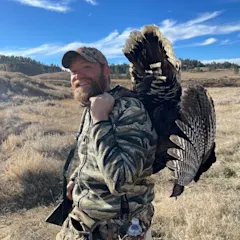Back in 2023, the Department of the Interior (DOI) banned all mining activity in a pristine portion of the Superior National Forest that drains into the famed Boundary Water Canoe Area Wilderness (BWCA) in northern Minnesota. Now, just two years later, that 20-year mining moratorium could be reversed—and stalled permits for a massive, foreign-operated copper mine on public land could move forward once again.
The Boundary Waters is the most-visited wilderness area in the country, drawing about 150,000 people every year. Home to a thousand interconnected lakes, 2,000 campsites, and 200 miles of trails, it’s a bucket-list destination for fishing and upland bird hunting—not to mention black bear and big-woods whitetail hunting. But a Chilean mining company's proposed copper mine has been a source of contention in the area for decades. Scores of hunting-focused conservationists, worried about the mine’s impacts on wildlife and habitat, cheered the DOI’s mining withdrawal when it was announced in January 2023.
In recent months, however, supporters of long-term protections for the BWCA have been uneasy as various threats to the DOI's mining ban have cropped up and faded away. In the last federal budget bill, for example, there was a provision that would have reversed the DOI's mining withdrawal, though it failed to pass a key Senate test known as the Byrd Rule.
Shortly after that provision failed, Brook Rollins, who oversees the Forest Service as head of the USDA, took to X to announce her agency's support for mining near the Boundary Waters. “Today, USDA is proud to announce that we are initiating the process to cancel the mineral withdrawal in the Rainey River watershed on the Superior National Forest,” the June 11 tweet reads. “After careful review, including extensive public input, the US Forest Service has enough information to know the withdrawal was never needed.” In her tweet, Rollins tagged DOI head Doug Burgum and said she'll work with him to get the stalled mining permits moving again.
Lukas Leaf, Executive Director of Sportsmen for the Boundary Waters, has been on the front lines of the seemingly endless fight for durable BWCA protections for over a decade. “Rollins’ assertion that they’ve already got the public input needed to reverse the moratorium is flat out untrue,” he tells Field & Stream. “In fact, there have been multiple public-input periods over the years that resulted in hundreds of thousands of supportive comments for the mining withdrawal.”
According to Backcountry Hunters & Anglers, members of the public provided 675,000 comments during multiple comment periods between 2016 and 2022. And a whopping 98 percent of those comments expressed strong opposition for copper-sulfide mining in the watershed that feeds the Boundary Waters. "Giving the future of these cherished public lands and waters to a foreign mining company will be disastrous for more than 400,000 Americans who hunt, fish, and recreate in the BWCA and Voyageurs National Park each year," said Chance Adams, chair of BHA’s Minnesota Chapter, in a statement issued the day after Rollins June 11 tweet. “The Minnesota chapter of BHA looks forward to ‘being in the arena’ with all public land owners as this issue progresses."
Opponents of the proposed mine have long warned of the adverse impacts it would have on the now-thriving wildlife habitat that makes the Boundary Waters such a cherished hunting and fishing destination. "Sulfide-ore copper mines have not been successful without polluting in some form," Leaf says. "The Boundary Waters is an extremely water-rich environment connected by rivers and aquifers flowing all the way up to Hudson Bay. Acid mine drainage and leakage of heavy metals into this water system would have devastating impacts on the intact species in the wilderness area. And remediation of that type of pollution is impossible."
Despite steadfast opposition from hunters and anglers, the Trump Administration has doubled down on its plan to reinvigorate mining efforts in recent days. On July 31, another high-level Interior official weighed in on X with stated support for Twin Metals, a Minnesota-based subsidiary of Antofagasta Copper. Antofagasta is the Chilean mining conglomerate that's seeking the permits.
"Interior is withdrawing the Biden administration’s misinterpretation of the law that was used to cancel leases at the Twin Metals mine," said Deputy Secretary of the Interior Kate McGregor. "This important first step will unlock significant quantities of important platinum-group metals vital to meeting Energy Dominance goals of POTUS."
Read Next: Feds Look to Divert Funds Used for Purchasing New Public Lands
Two weeks prior to her tweet, on July 17, McGregor issued a legal opinion that negated a Biden-era ruling canceling Twin Metals leases in the Rainy River Watershed. According to Leaf, that opinion is the first step toward reinstating Twin Metals' controversial mining leases. “This administration is continually acting through a shortsighted lens, prioritizing profit over habitat, wildlife, and clean water, threatening the wild places that public land owners across America hold dear to their hearts,” Leaf says. "Hunters, hikers, anglers, birders, and outdoor users from across the nation must stand in unity to stop the sell out of the Boundary Waters.”


